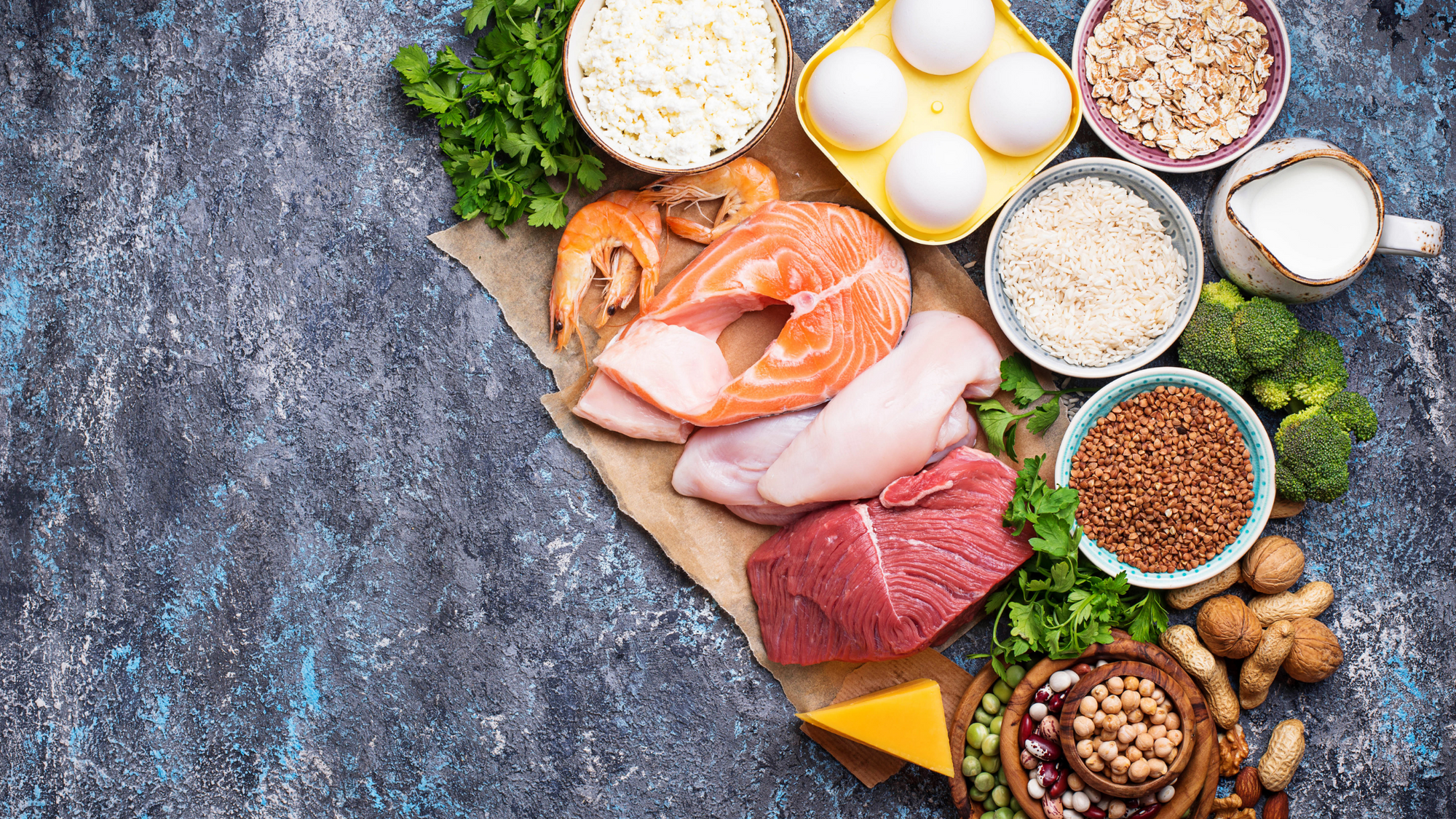You hear about L-carnitine mainly in the fitness sector, as it is said to increase performance . It is also said to boost fat burning and is therefore often advertised as a weight loss product .
What exactly is L-carnitine and is there any truth to this promise?
At the end of the article we have provided you with a voucher for our L-carnitine . It's worth reading on!
What is L-carnitine?
Carnitine is an amino acid , but it is not used as a protein building block. The job of carnitine is to transport fatty acids into the mitochondria . These are small organelles inside the cell that are also known as the power plants of the cell because they produce a large part of the energy. The β-oxidation of fatty acids takes place in the mitochondria. Colloquially, this is called fat burning . This is where fat is converted into energy that the body can use for muscle movement, for example. [1]
Like other amino acids, carnitine can be present as D-carnitine or L-carnitine . However, only L-carnitine is of biological importance. So when you read carnitine, you always mean L-carnitine, including in this article.
At the end of the article we have a gift for you. It's worth reading on!
Effect of L-carnitine
Carnitine is popular as a dietary supplement because it is said to have positive effects. Above all, it is said to be able to increase fat burning and athletic performance.
Does carnitine increase fat burning?
Since carnitine is necessary for the transport of fatty acids into the mitochondria, where they are then “burned”, carnitine is often marketed as a fat burner that is supposed to help melt the fat around your hips.
However, the body can produce the required amounts of carnitine itself (see below), and more carnitine does not necessarily mean more fat burning. The research is not clear on this point. Although there are some studies that show that supplementing with carnitine can promote weight loss , this is not considered proven. [2]
Does carnitine improve athletic performance?
Carnitine is also popular among athletes because it is said to increase performance . However, there is little research on this. For example, studies have shown that supplementation does not increase the performance of marathon runners or sprinters . [3] , [4] However, individual studies show a positive effect of carnitine on athletic performance. For example, a study with footballers in which carnitine improved endurance . [5]
However, most of these studies did not examine whether participants were carnitine deficient (which is unlikely in healthy subjects). So if carnitine deficiency exists, it is certainly possible that carnitine could improve performance.

Carnitine deficiency symptoms
A carnitine deficiency can manifest itself through: [6]
- Tiredness and exhaustion
- Difficulty concentrating
- Muscle weakness and cramps
- Heart failure
- Susceptibility to infection
- Hypoglycemia
Causes of carnitine deficiency
Most people get most of their carnitine needs from food. Meat is by far the best source of carnitine, especially red meat such as beef and lamb.
If necessary, the body can also produce carnitine itself. To do so, it needs the two essential amino acids lysine and methionine, and vitamin C , vitamin B6, vitamin B3 (niacin) and iron as cofactors.
A diet low in carnitine therefore does not usually cause a carnitine deficiency. Rather, an inadequate intake of nutrients needed to produce carnitine can lead to a deficiency. A deficiency can also be promoted by an increased excretion of carnitine.
The following groups of people are at increased risk of L-carnitine deficiency:
Vegetarians and vegans
Vegetarians and vegans consume significantly less carnitine than people who eat meat. Omnivores consume around 100-300 mg of carnitine daily through their diet. Vegetarians who eat eggs and dairy products only consume around 15-25% of this amount, and vegans 3-10%. [7]
Vegetarians and vegans have lower carnitine stores in their muscles , but a meat-free diet alone is not a cause of a deficiency. [8] However, vegetarians and vegans are at increased risk of carnitine deficiency because they tend to consume less of the amino acids methionine and lysine than people who eat meat. [9]

Cancer patients
Approximately 80% of cancer patients have a carnitine deficiency in advanced stages of the disease. [10] This is often due to malnutrition. They do not consume enough meat and nutrients that are needed as cofactors for carnitine production. Chemotherapy can also lead to increased excretion of carnitine.
Studies show that carnitine supplementation can counteract muscle loss and improve the overall health of cancer patients. [11]
People with renal insufficiency
In the case of renal insufficiency , the kidneys have problems recycling carnitine. As a result, it is excreted in increased amounts via the urine and a deficiency can easily occur. [12]
Diabetes patients
Patients with type 2 diabetes (so-called adult-onset diabetes) often have a carnitine deficiency. However, it is not entirely clear whether a carnitine deficiency promotes diabetes or whether diabetes causes the deficiency. [13]

People who take antibiotics over a long period of time
Long-term use of pivalic acid-based antibiotics , such as pivampicillin , can cause carnitine deficiency, probably by either inhibiting absorption or impairing its own synthesis. [14]
Foods with L-carnitine
L-carnitine is mainly found in meat , but it can also be found in other foods . The following foods contain L-carnitine: [15]
|
Groceries |
mg carnitine per 100 g |
|
Meat extract |
3686 |
|
veal |
69.7 - 105 |
|
beef |
45 - 143 |
|
Wild |
35 - 193 |
|
Lamb or mutton |
16.7 - 190 |
|
pork |
14.4 - 24 |
|
poultry |
4.3 – 13.3 |
|
Fish and seafood |
1.7 – 13.2 |
|
Mushrooms |
1.3 - 15 |
|
Milk and milk products |
0.6 – 12.7 |
Buy L-Carnitine
Supplementation with L-carnitine can be useful in the case of a carnitine deficiency in order to compensate for deficiencies. Risk groups can also benefit from a carnitine supplement to prevent a deficiency .
When buying, you should pay attention to the form in which L-carnitine is available. L-carnitine esters, such as acetyl-L-carnitine and lauroyl-L-carnitine, have a lower bioavailability than other forms. [16] This means that the body cannot absorb and use it as well.
Viktilabs' L-carnitine contains free L-carnitine as well as L -carnitine tartrate , both of which have a high bioavailability . The capsules are vegan .
Conclusion: Carnitine is not an essential nutrient, but a deficiency is still possible
Carnitine has important functions in fat metabolism. The body can produce carnitine itself, but a deficiency can still occur. Cancer patients in particular are often affected by a deficiency. But vegans and people with kidney problems are also often not well supplied with L-carnitine. Supplementing with high-quality L-carnitine can help to compensate for or prevent a deficiency.
We at +Viktilabs have a 15 % coupon for our L-Carnitine provided and hope to bring you joy.
Simply copy the voucher code " CARNITIN+V15 " and enter it at checkout.
Click here for the product
[1] https://ods.od.nih.gov/factsheets/Carnitine-HealthProfessional/
[2] https://pubmed.ncbi.nlm.nih.gov/31743774/
[3] https://link.springer.com/article/10.1007/BF00334420
[4] https://www.thieme-connect.de/products/ejournals/html/10.1055/s-0035-1547580
[5] https://pubmed.ncbi.nlm.nih.gov/24263659/
[6] https://www.thieme.de/de/naturheilverfahren/l-carnitin-portraet-einer-aminosaeure-92804.htm
[7] https://www.thieme-connect.de/products/ejournals/html/10.1055/s-0035-1547580
[8] https://academic.oup.com/ajcn/article/94/3/938/4411875
[9] https://pubmed.ncbi.nlm.nih.gov/11043928/
[10] https://pubmed.ncbi.nlm.nih.gov/15591014/
[11] https://pubmed.ncbi.nlm.nih.gov/29737795/
[12] https://www.ncbi.nlm.nih.gov/pmc/articles/PMC6893685/
[13] https://www.ncbi.nlm.nih.gov/pmc/articles/PMC5856836/
[14] https://www.ncbi.nlm.nih.gov/pmc/articles/PMC2399489/
[15] https://www.thieme-connect.de/products/ejournals/html/10.1055/s-0035-1547580

















